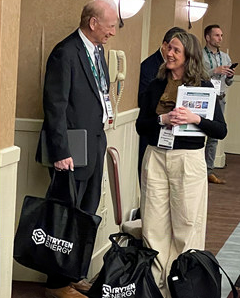Battery Workforce Initiative
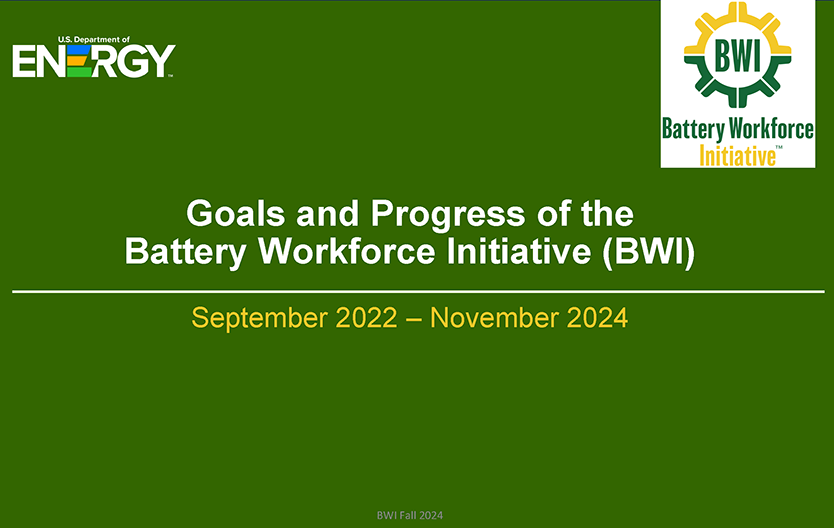
Battery Workforce Initiative Interim Report
This report serves as a critical milestone in the BWI’s mission to help aide in the development of a skilled workforce for the nation’s competitive domestic battery industry. The report details how BWI has collaborated with industry leaders, educational institutions, and federal agencies to identify skills gaps, develop training programs, and create pathways for workers into high-demand jobs in advanced battery production. Key accomplishments include the release of National Guideline Standards, creation of pilot training programs, and ongoing collaboration with key firms. Explore the report to learn more about our progress and how we’re helping shape the future of energy jobs.
New National Guideline Standards
The Battery Workforce Initiative, led by the U.S. Department of Energy, finalized a key tool to help aide in the development of a skilled workforce for the nation’s competitive domestic battery industry. Crafted in concert with the U.S. Department of Labor, the National Guideline Standards (NGS) for the Battery Machine Operator occupation provides a detailed list of the skill requirements and competencies for workers in advanced battery manufacturing facilities. Employers, joint labor-management organizations, educators, and others may use this framework to design and implement job training programs that are responsive to the needs of the industry for workers, both entry-level employees and incumbent workers, who wish to upgrade their skills and knowledge. The standards are certified by the U.S. Department of Labor.
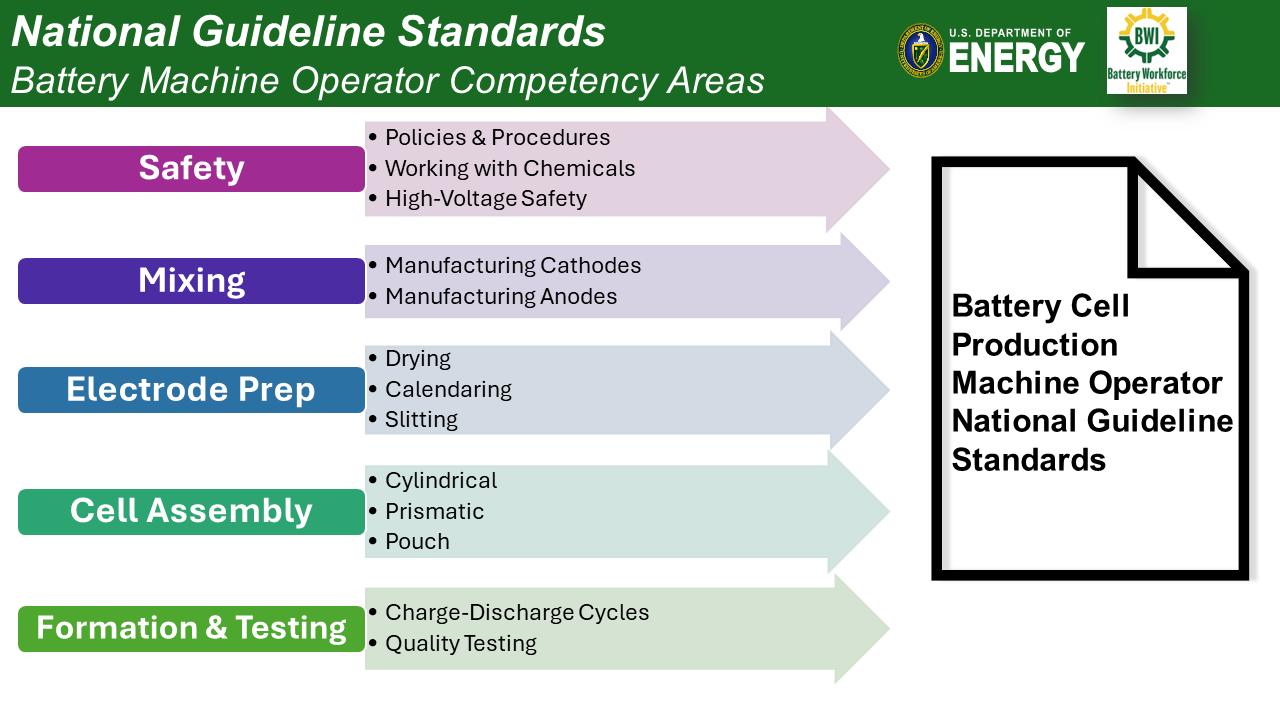
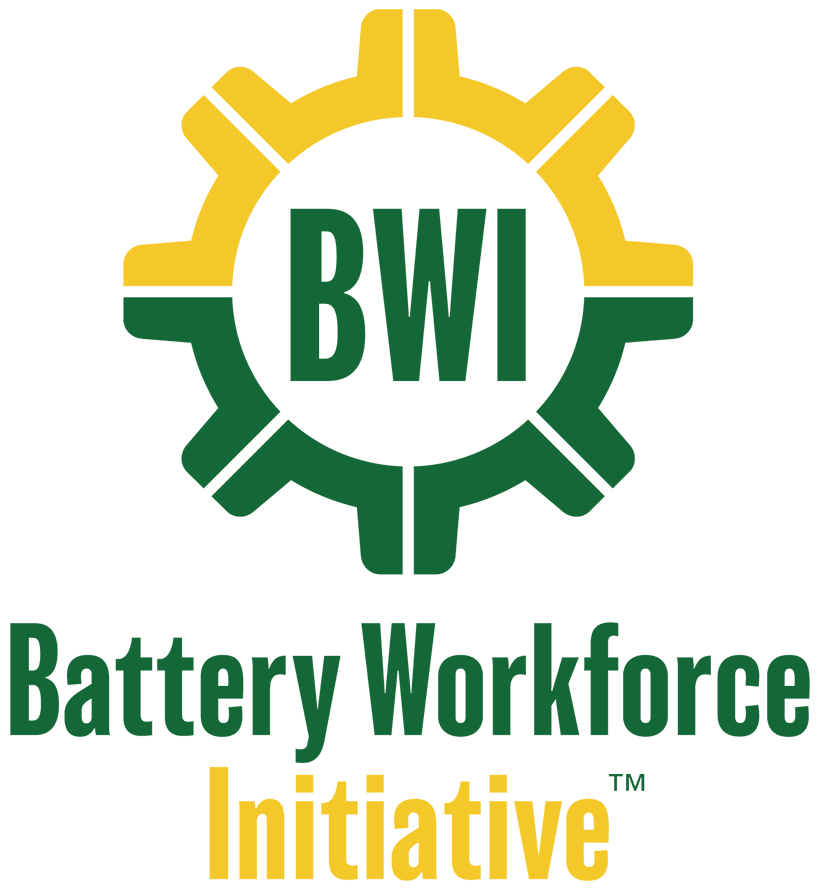
The U.S. Department of Energy (DOE) is establishing a team of experts and stakeholders from the advanced battery industry to rapidly develop training and materials for key occupations (as defined by industry) in a manner that complements ongoing workforce development efforts. DOE is coordinating the Battery Workforce Initiative (BWI) with the U.S. Department of Labor (DOL), American Federation of Labor and Congress of Industrial Organizations (AFL-CIO) Working for America Institute, Li-Bridge alliance members, and other organizations.
Purpose
The purpose of this industry-driven, government-facilitated initiative is to speed up the development of high-quality training, starting with existing examples to develop consensus on core training needs, and then develop training for use by companies and local training providers. The initiative will:
- Convene battery industry organizations to cooperate in the development of training by sharing non-proprietary requirements for high-demand occupations.
- Engage training experts from manufacturers, labor, education, government, and other organizations to participate in facilitated workshops that quickly distill common skills and abilities needed in each industry segment and accelerate decision making.
- Translate those needs into educational and on-the-job training requirements, forming the basis for training materials and guides.
The initiative includes employer-based testing and validation programs that will test the effectiveness of draft training for high-priority job positions/responsibilities identified by the initiative.
The initiative will result in draft training for each job position/responsibility tested and improved upon during the employer-based testing and validation programs. The draft training will be used to develop a DOL-approved credential and shared with community colleges and other training providers.
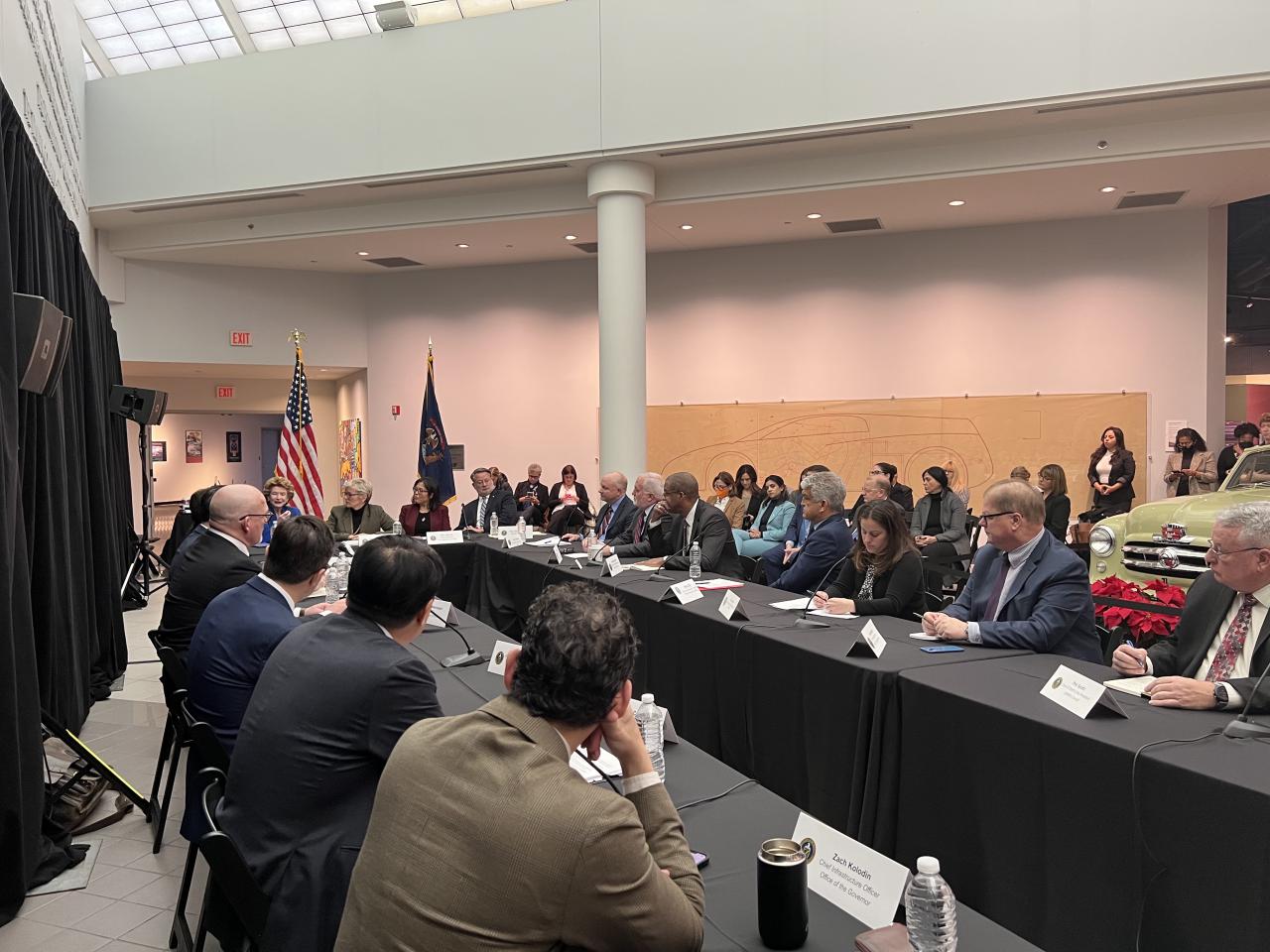
Driving Battery Manufacturing Forward
- The United States is expected to double its manufacturing capacity by 2025, with more than 10 new battery manufacturing plants expected to be operational in the next five years.
- As of 2020, U.S. capacity of global electric vehicle (EV) lithium-ion cell manufacturing was approximately 59 GWh. That number is expected to grow to 224 GWh by 2025.
- To keep up with this demand and retain a competitive manufacturing base, the United States needs a robust supply chain and skilled workforce to produce state-of-the-art, reliable EV and grid storage batteries at scale.
Battery Workforce Initiative
Battery Workforce Initiative Publications
- Battery Workforce Initiative Industry Webinar Notes (January 2025)
- Battery Workforce Initiative Fact Sheet
- Battery Workforce Initiative – Job Task Analysis – Fact Sheet
- Battery Workforce Initiative Program Status Update (March 2025)
- Summary of Battery Workforce Initiative Industry Roundtables (October 2022)
- Summary of Battery Workforce Initiative Industry Roundtable (December 2022)
Supporting Material and Resources
- Building a Robust and Resilient U.S. Lithium Battery Supply Chain
- Federal Consortium for Advanced Batteries (FCAB)
Supporting DOE Program Offices
The initiative's Project Implementation Team traveled to Arizona in February 2023 to attend the annual NAATBatt conference. The team shared updates with the workforce committee and networked with many individuals to discuss key industry skillsets and needs.
